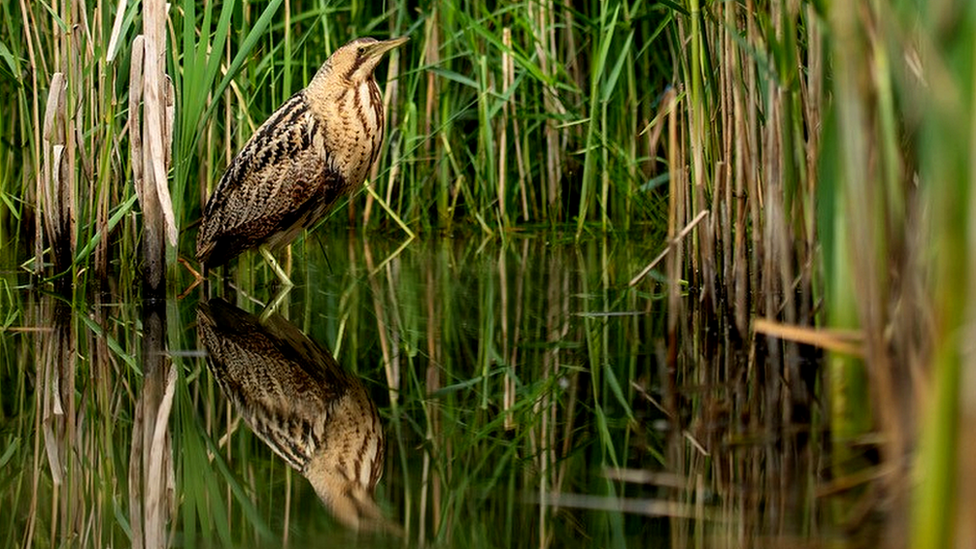Bitterns: Britain's loudest bird making a comeback in London
- Published
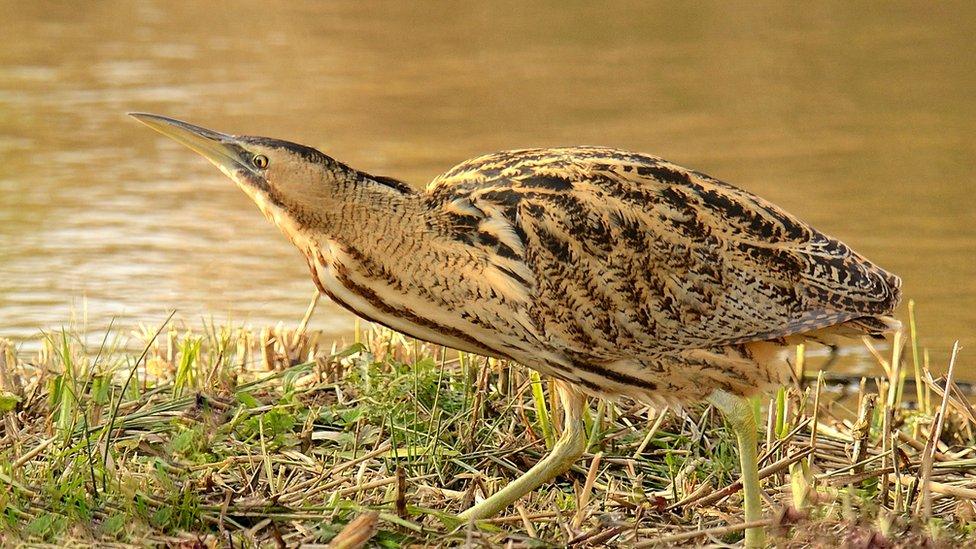
The number of bitterns in London has increased over the last 21 years
Britain's loudest bird, the bittern, has made a comeback over the winter months in London, conservationists say.
There were only 30 known breeding pairs in the UK when the London Wetland Centre opened in Barnes in 2000, but now there are more than 200.
Requiring large, undisturbed reedbeds to hunt and breed, the centre is the only place it can be regularly seen in the capital during winter.
Three common white storks are also being introduced to the centre.
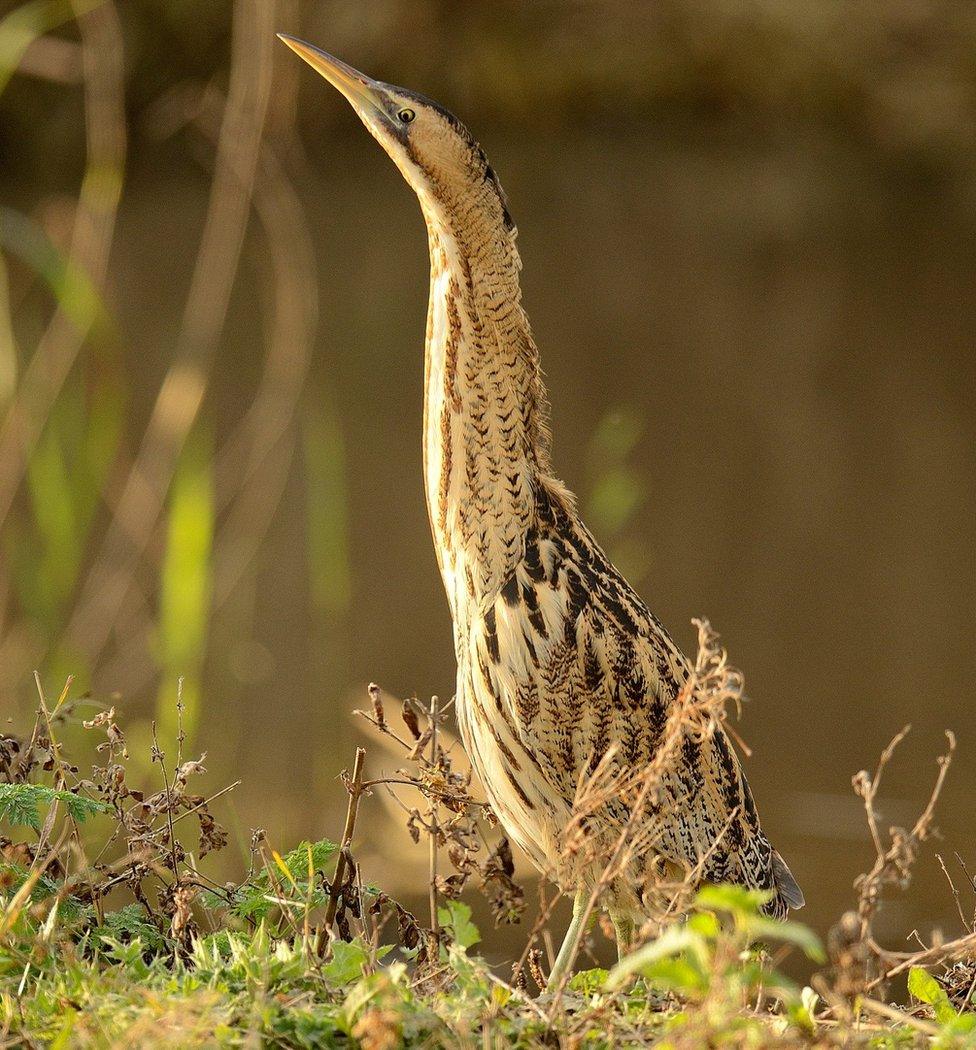
The male bittern has been dubbed Britain's loudest bird due to its booming call
Reserve manager, Adam Salmon, said: "With its numbers steadily rising, the bittern is a true flagship species for wetland conservation - proving that if we work to protect and restore precious habitats we can turn the tide on extinction."
The species was pushed to the brink of extinction in Victorian times when their reedbed homes were drained for reservoirs.
According to the RSPCA, the birds are the loudest in the UK with the males making a far-carrying booming sound in spring which can be heard three miles away.
However, they are often hard to spot due to their effective camouflage.
Senior reserve warden, Angus Wilkinson, said: "The bittern is such a special sight in the UK and we're thrilled that London Wetland Centre has been able to offer this species a wintering ground haven for more than two decades."
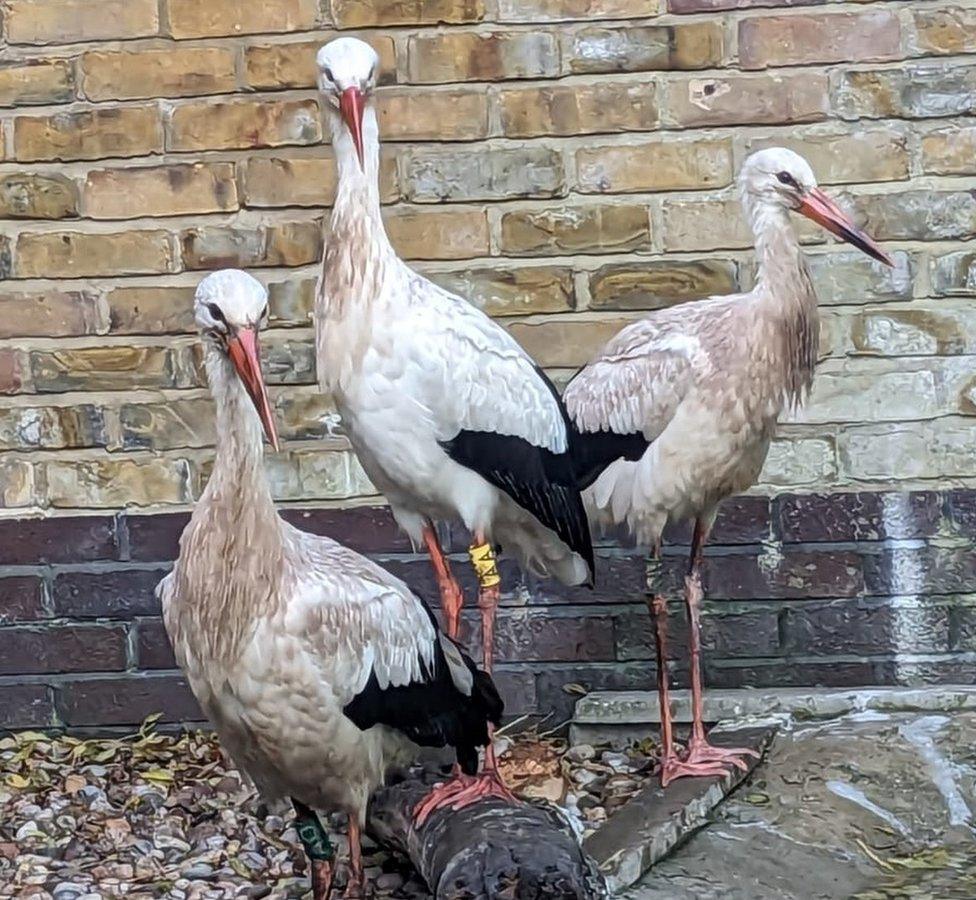
Three common white storks are being introduced at the centre
The three common white storks, which are rare in the UK and much of Europe, are being introduced with the hope that they will form part of a breeding program.
"Having species like the white stork here at the centre reminds us of what we stand to lose if we don't act now and stand up for the protection of precious habitats," John Arbon, the living collections manager, said

Listen to the best of BBC Radio London on Sounds and follow BBC London on Facebook, external, X, external and Instagram, external. Send your story ideas to hellobbclondon@bbc.co.uk, external
Related topics
- Published16 August 2023
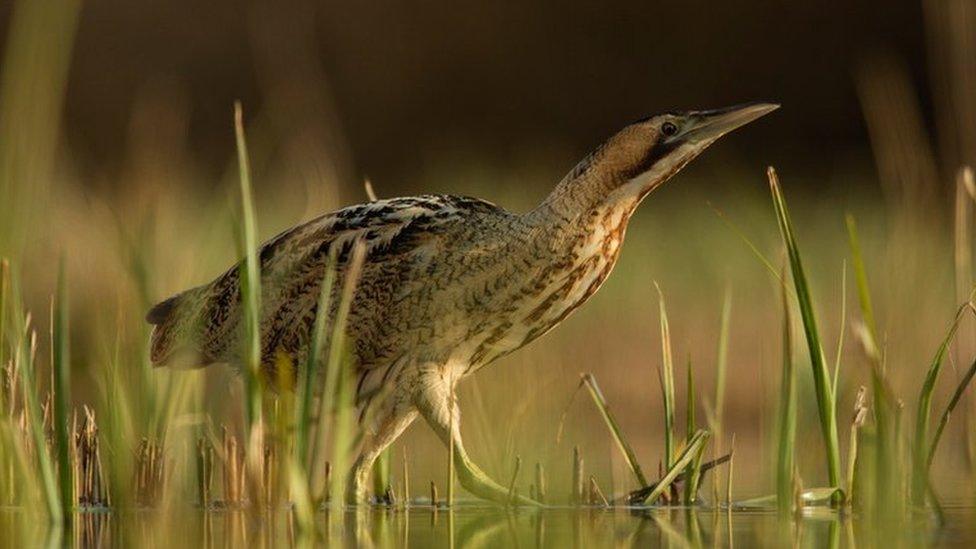
- Published25 March 2022
